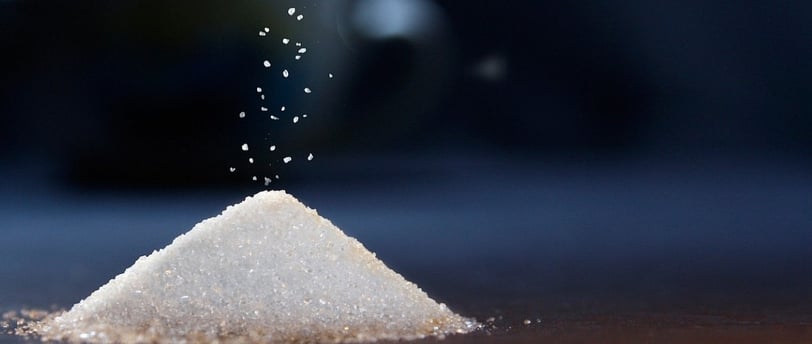Why You Should Avoid Sucralose: The Hidden Dangers of This Common Sweetener
Learn why sucralose, a common artificial sweetener, may harm your gut health and cause digestive issues. Discover the potential risks and explore healthier alternatives.
INGREDIENTSHEALTH AT A GLANCEHEALTHY CHOICES
Healthatize
8/17/20242 min read


Sucralose, an artificial sweetener found in many "sugar-free" and "diet" products, is often marketed as a healthier alternative to sugar. However, recent research suggests that sucralose may not be as harmless as it seems. This article delves into why you should consider avoiding sucralose, particularly due to its potential effects on gut health and digestion.
What is Sucralose?
Sucralose is a zero-calorie artificial sweetener that is approximately 600 times sweeter than sugar. It’s commonly used in a wide range of products, including soft drinks, baked goods, chewing gum, and even certain medications. Sucralose is often preferred by manufacturers because it doesn’t add calories and is stable at high temperatures, making it ideal for cooking and baking.
How Sucralose Affects Gut Health
One of the most concerning aspects of sucralose is its impact on gut microbiota—the community of beneficial bacteria that live in your digestive tract. A healthy gut microbiota is crucial for digestion, immune function, and even mental health. Emerging studies have shown that sucralose can disrupt the balance of these bacteria, leading to a range of potential health issues.
Alteration of Gut Microbiota:
Research indicates that sucralose can reduce the number of beneficial bacteria in the gut while allowing harmful bacteria to thrive. This imbalance, known as dysbiosis, can contribute to digestive problems, including bloating, gas, and even conditions like irritable bowel syndrome (IBS).Potential Long-Term Effects:
The changes in gut microbiota caused by sucralose may have long-term health implications. A disrupted gut can lead to chronic inflammation, which is linked to a variety of health issues, including obesity, diabetes, and autoimmune diseases.
Digestive Issues Linked to Sucralose
In addition to its effects on gut bacteria, sucralose has been associated with various digestive problems. Some people may experience immediate symptoms after consuming sucralose, such as bloating, gas, or diarrhea. These symptoms are often the result of the body’s inability to properly break down and absorb artificial sweeteners.
Reduced Digestive Efficiency:
Sucralose can interfere with the body’s natural digestive processes, leading to discomfort and irregular bowel movements. Over time, this can affect the overall efficiency of your digestive system, making it harder to absorb essential nutrients.Increased Risk of Gastrointestinal Disorders:
Regular consumption of sucralose may increase the risk of developing gastrointestinal disorders. The sweetener’s impact on gut health and digestion could contribute to more severe conditions over time, particularly if consumed in large quantities.
Alternatives to Sucralose
Given the potential risks associated with sucralose, it’s wise to consider natural alternatives that are less likely to disrupt your gut health. Some options include:
Stevia:
A natural sweetener derived from the leaves of the Stevia plant, it is calorie-free and has minimal impact on blood sugar levels.Honey:
While it does contain calories, honey is a natural sweetener with antioxidant properties and can be a healthier alternative when used in moderation.Maple Syrup:
Another natural sweetener that, while caloric, offers a range of nutrients and a lower glycemic index than sugar.
While sucralose might seem like a convenient way to reduce sugar intake, its potential to alter gut microbiota and cause digestive issues makes it a risky choice. By being aware of the hidden dangers of sucralose, you can make more informed decisions about your diet and choose healthier alternatives that support both your gut health and overall well-being.
